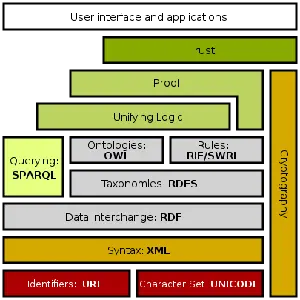The Power of Self-Faith
Published:
 In the ever-changing journey of life, it’s impossible to avoid encountering uncertainties, obstacles, and challenges. Whether it’s dealing with personal setbacks, navigating complex relationships, or facing the unpredictable twists and turns that life throws our way, each of us will inevitably confront moments of doubt, fear, and confusion. The weight of these challenges can often feel overwhelming, as though the path ahead is obscured by a fog of uncertainty. Yet, amidst this tumultuous landscape, there remains one unwavering truth: if you cultivate good faith in yourself, you will be fine. Read more
In the ever-changing journey of life, it’s impossible to avoid encountering uncertainties, obstacles, and challenges. Whether it’s dealing with personal setbacks, navigating complex relationships, or facing the unpredictable twists and turns that life throws our way, each of us will inevitably confront moments of doubt, fear, and confusion. The weight of these challenges can often feel overwhelming, as though the path ahead is obscured by a fog of uncertainty. Yet, amidst this tumultuous landscape, there remains one unwavering truth: if you cultivate good faith in yourself, you will be fine. Read more
 “Her acı insana bi şey öğretmez. Çoğu kez sadece acı çekersin.” (Not every pain teaches you anything. Most of the time you just suffer.) These words, spoken by Turkish poet and writer Ataol Behramoğlu, hold a great deal of truth. It’s easy to think that every negative experience we go through must have a lesson for us to learn, but the reality is often quite different. Sometimes, life is simply hard, and we suffer because of it.
“Her acı insana bi şey öğretmez. Çoğu kez sadece acı çekersin.” (Not every pain teaches you anything. Most of the time you just suffer.) These words, spoken by Turkish poet and writer Ataol Behramoğlu, hold a great deal of truth. It’s easy to think that every negative experience we go through must have a lesson for us to learn, but the reality is often quite different. Sometimes, life is simply hard, and we suffer because of it.  If you’re interested in becoming a good software developer, there are a few things you can do to help build a solid foundation of knowledge and skills. First and foremost, it’s important to focus on learning computer science concepts and programming principles. This means studying topics like algorithms, data structures, and software design patterns. Once you have a good grasp of these fundamental concepts, it’s important to practice applying them to solve real-world problems. This can involve working on personal coding projects, participating in coding challenges, or contributing to open-source software projects. Additionally, it’s helpful to stay up-to-date with new developments and technologies in the field, by reading industry blogs and attending tech conferences or meetups. With dedication and practice, you can become a skilled and successful software developer!
If you’re interested in becoming a good software developer, there are a few things you can do to help build a solid foundation of knowledge and skills. First and foremost, it’s important to focus on learning computer science concepts and programming principles. This means studying topics like algorithms, data structures, and software design patterns. Once you have a good grasp of these fundamental concepts, it’s important to practice applying them to solve real-world problems. This can involve working on personal coding projects, participating in coding challenges, or contributing to open-source software projects. Additionally, it’s helpful to stay up-to-date with new developments and technologies in the field, by reading industry blogs and attending tech conferences or meetups. With dedication and practice, you can become a skilled and successful software developer!  Semantic web technologies are a set of tools and standards for representing and sharing data on the World Wide Web in a way that allows machines to understand and process the data. The goal of the semantic web is to create a common framework that allows data to be shared and reused across different applications and domains, enabling more intelligent and efficient access to information. The semantic web relies on the use of explicit and standardized definitions of the meanings of data elements, known as “ontologies,” which provide a common vocabulary for describing and organizing data. This allows machines to understand the relationships between different data elements and to process and analyze the data in a more meaningful way.
Semantic web technologies are a set of tools and standards for representing and sharing data on the World Wide Web in a way that allows machines to understand and process the data. The goal of the semantic web is to create a common framework that allows data to be shared and reused across different applications and domains, enabling more intelligent and efficient access to information. The semantic web relies on the use of explicit and standardized definitions of the meanings of data elements, known as “ontologies,” which provide a common vocabulary for describing and organizing data. This allows machines to understand the relationships between different data elements and to process and analyze the data in a more meaningful way.